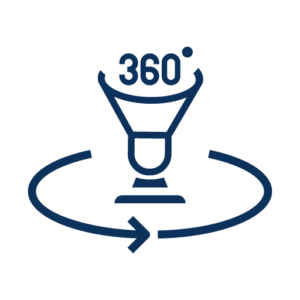Effective SEO Strategies – Boost Your Website’s Visibility
In today’s digital landscape, search engine optimization (SEO) is an essential component of any successful online marketing strategy. SEO involves optimizing your website and content to rank higher in search engine results pages (SERPs), ultimately driving organic traffic and increasing visibility. In this article, we’ll explore the fundamentals of SEO, effective techniques, and best practices to help you enhance your online presence and reach your target audience.
Understanding SEO(Search engine optimization)
SEO is the practice of optimizing your website and content to improve its visibility in search engine rankings. When users search for keywords or phrases related to your business, you want your website to appear prominently in the search results, ideally on the first page. By optimizing your website for search engines, you increase the likelihood of attracting organic traffic, which can lead to higher conversions and business growth.
Keywords and On-Page Optimization
Keywords play a crucial role in SEO. These are the words or phrases users enter into search engines when looking for specific information or solutions. Conducting thorough keyword research allows you to identify the keywords relevant to your business and target audience. Once you have a list of target keywords, incorporate them strategically into your website’s content, meta tags, headings, and URLs.
High-Quality Content
Creating high-quality content is not only important for engaging your audience but also for SEO purposes. Search engines prioritize websites that provide valuable, relevant, and well-structured content. Aim to produce content that answers users’ questions, solves their problems, and offers unique insights. By consistently delivering valuable content, you can establish your website as an authority in your industry and attract more organic traffic.
Technical Search engine optimization
Technical Search engine optimization focuses on optimizing the technical aspects of your website to improve its visibility in search engines. Some key technical SEO elements include:
- Website Speed: Ensure that your website loads quickly across all devices. Slow-loading websites can negatively impact user experience and search engine rankings.
- Mobile Optimization: Optimize your website for mobile devices, as an increasing number of users access the internet through smartphones and tablets. Responsive design and mobile-friendly layouts are essential.
- Website Architecture: Create a clear and logical website structure that allows search engine crawlers to navigate and index your content easily.
- URL Structure: Use descriptive and keyword-rich URLs that accurately reflect the content of each page on your website.
- Sitemap and Robots.txt: Create a sitemap to help search engines understand your website’s structure, and utilize a robots.txt file to control which pages search engine bots can access and crawl.
Backlinks and Off-Page Optimization
Off-page optimization involves activities that occur outside your website but contribute to its search engine rankings. One crucial aspect of off-page optimization is building high-quality backlinks. Backlinks are links from external websites that point to your site. Search engines consider backlinks as votes of confidence and use them to assess the credibility and authority of your website. Focus on obtaining backlinks from reputable and relevant websites within your industry to improve your search engine rankings.
User Experience and Engagement
User experience (UX) and engagement metrics are increasingly significant factors in SEO. Search engines prioritize websites that offer a positive user experience and keep users engaged. Factors that contribute to a positive UX include:
- Website Design: Ensure your website has an appealing and user-friendly design. Optimize the layout, typography, and visual elements to enhance the overall user experience.
- Navigation: Create a clear and intuitive navigation structure that allows users to find the information they need quickly.
- Internal Linking: Use internal links to guide users to related content within your website. This helps users discover more relevant information and improves the overall user experience.
- Engaging Multimedia: Incorporate images, videos, and interactive elements into your content to make it more engaging and visually appealing.
Monitoring and Analytics
Measuring and analyzing the performance of your SEO efforts is crucial to refining your strategy and achieving better results. Utilize analytics tools, such as Google Analytics, to track key metrics like website traffic, user behavior, and conversion rates. Monitor keyword rankings, backlink profiles, and overall website visibility regularly. By analyzing the data, you can identify areas for improvement, optimize your SEO strategies, and stay ahead of the competition.
Conclusion
Search engine optimization is a multifaceted discipline that requires ongoing effort and adaptation. By implementing effective SEO techniques, optimizing your website’s technical aspects, creating high-quality content, and focusing on user experience and engagement, you can boost your online visibility, attract organic traffic, and achieve long-term success. Remember to stay up-to-date with the latest SEO trends and best practices to maintain a competitive edge in the ever-evolving digital landscape.
Frequently Asked Questions (FAQs)
1. How long does it take to see results from SEO efforts? The time it takes to see SEO results can vary depending on various factors such as the competitiveness of your industry, the quality of your SEO efforts, and the frequency of search engine algorithm updates. Generally, it takes several months to start seeing significant improvements, but patience and consistency are key.
2. Can I do SEO on my own, or should I hire a professional? You can certainly learn and implement basic SEO practices on your own. However, SEO can be complex, and it requires ongoing effort and expertise to achieve optimal results. Hiring an experienced SEO professional or agency can help you navigate the intricacies of SEO and maximize your chances of success.
3. Is SEO only about ranking higher in search engines? While ranking higher in search engines is a primary goal of SEO, it’s not the only objective. SEO also focuses on improving user experience, driving organic traffic, increasing brand visibility, and ultimately driving conversions and business growth.
4. Are there any shortcuts or quick fixes for SEO? SEO is a long-term strategy that requires consistent effort and adherence to best practices. Beware of any claims or techniques promising quick fixes or shortcuts, as they can often lead to penalties from search engines and harm your website’s rankings. Focus on implementing sustainable and ethical SEO practices for long-term success.
5. How often should I update my website’s content for SEO? Regularly updating your website’s content is beneficial for both users and search engines. Aim to create new content or refresh existing content periodically to provide fresh and valuable information to your audience. Additionally, updating content gives search engines a reason to revisit and re-index your website, potentially improving your search engine rankings.











